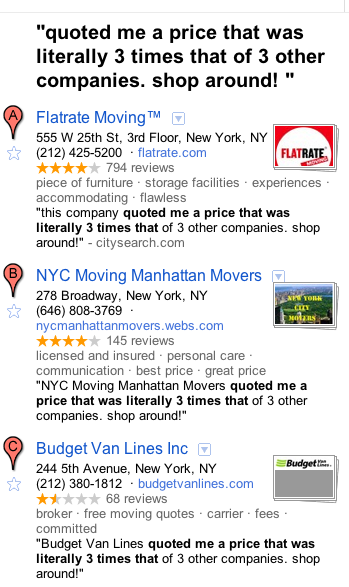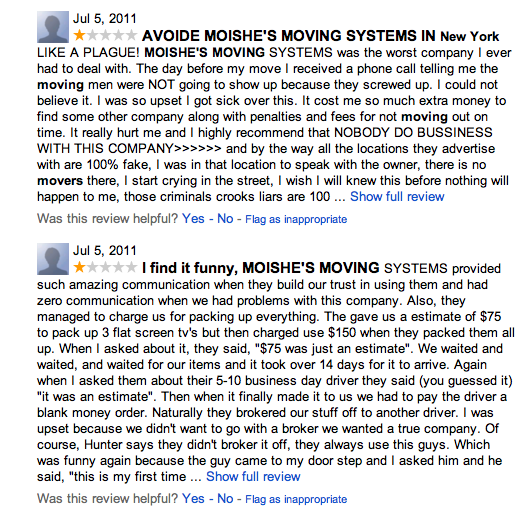Barbara Oliver & Co. Jewelry’s Google Place page was hit with what appears to be a competitor spam review. The review is rather bizarre with racial innuendo and unfounded accusations. It would appear that the reviewer had not ever visited the store.
The timing of the spam review is interesting. There have previously been review complaints against other businesses in her market for having posted their own fake reviews. With Google no longer counting 3rd party reviews as of July 21st, there was a radical shift in the number of counted reviews showing for businesses that were returned in key searches in the market. Barbara fared well with the new review count totals while others in the market did not. Whether these facts are related to the spam review is unclear but I thought they added context and certainly raised suspicions.
The review is in technical violation of Google’s review guidelines although it is not at all obvious that it will be taken down by Google or if they will take it down, when. And like all reviews of this type, it points to a process failure in how Google handles review take down requests by SMBs.
Because of Barbara’s many positive reviews it had no impact on her star rating. Fortunately the best of all possible events occurred when a client responded to the bogus review directly and came to Barbara’s defense and another review was posted pushing the spam review down the page. It certainly points to the benefits of having happy clients speaking on your behalf in the on-line conversation.
I have been of two minds in regards to an owner response and have more questions than answers at this point. Would the review be somehow legitimized by any response? Would it bring unwarranted attention to it? Can a response be written, focused on future customers, that would stand the business and Barbara in good stead? Or is steady at the helm, garner new customer reviews the overall best, singular tactic? Barbara of course was calling for blood but was willing to take my advice and she recognized the power of having her customers speak on her behalf once that occurred.
The question at hand that I would like help answering: Should Barbara provide an owner response? If so why and what should the response look like? And if not why not?
P.S. a few simple Google Places Reputation management tips:
– With the new Places layout on the desktop, Offers (aka coupons) push reviews below the fold on both the desktop and mobile.
– The Share an Update (available from the analytics view) also pushes reviews down the page albeit not as much as a coupon
– Also if a previous reviewer simply edits/re-saves their review it will ascend to the top of the list pushing more recent reviews down.



